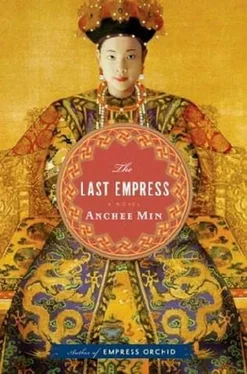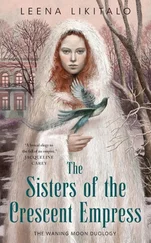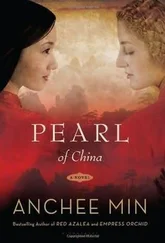"Which one?"
"Confucius."
"How?"
"The bird refused to say what he was taught. It had been speaking its own language and therefore was punished. The eunuch training him did his best. He tried tricks that had worked in the past, including starvation. But Confucius was stubborn and didn't say another word. He died yesterday."
"Poor Confucius." I remembered the beautiful and clever bird, which was my husband's gift to me. "What can I say? Confucius was right when he said that men are born evil."
"The pigeons are lucky," An-te-hai said, looking at the sky. "High up they went and disappeared in the clouds. I am not sorry for helping them escape, my lady. I am actually happy for what I did."
"What about the reed pipes you tied on the pigeons' feet? Did you let them take the music with them? They would be fed under any roof if they brought music."
"I removed the pipes, my lady."
"All of them?"
"Yes, all of them."
"Why would you do such a thing?"
"Aren't they Imperial birds, my lady? Aren't they entitled to freedom?"
I was preoccupied with Tung Chih. Every minute I wanted to know where he was, what he was doing, and whether Doctor Sun Pao-tien was succeeding with his treatment. I ordered Tung Chih's menu sent to me, because I didn't trust that he was being fed properly. I sent eunuchs to follow his friend Tsai-chen to ensure that the two boys remained apart.
I was restless and felt caught in a mysterious force telling me that my son was in danger. Both Tung Chih and Doctor Sun Pao-tien avoided me. Tung Chih even went to work on the court papers so I would have to leave him alone. But my worry didn't go away. It turned into fear. In my nightmares, Tung Chih called for my help and I couldn't reach him.
In an effort to distract myself, I ordered a performance of a pon-pon opera and invited my inner court to join me. Everyone was shocked because pon-pon opera was considered entertainment for the poor. I had seen such operas performed in villages when I was a young girl. After my father was demoted from his post, my mother had ordered a performance to lighten his mood. I remembered how much I had enjoyed it. After I came to Peking, I longed to see one again, but I was told that such a low form was forbidden in the palace.
The troupe was small, just two women and three men, and had old costumes and pitiful props. They had trouble getting past the gate because the guards didn't believe that I had summoned them. Even Li Lien-ying could not convince the guards, and the troupe was released only when An-te-hai showed up.
Before the opera, I greeted the master performer in private. He was a bone-thin, half-blind man with rheumy eyes. I assumed that the robe he wore was his best, but it was covered with patches. I thanked him for coming and told my kitchen to feed the actors before they went on-stage.
The set was simple. A plain red curtain was their background. The master sat on a stool. He tuned his erhu, a two-stringed instrument, and began to play. He produced a sound that reminded me of fabric being torn. The music was like a cry of grief, yet it was strangely soothing to my ears.
When the opera had begun, I looked around and noticed that I was the only one left in the audience besides An-te-hai and Li Lien-ying. Everybody else had quietly left. The melody was not quite what I had remembered. The tone sounded like wind riding high in the sky. The universe seemed filled with the fabric-tearing noise. I imagined that this was how spirits being chased would sound. My mind's eye could see stony fields and fir forests gradually being covered by sand.
The music finally faded. The master performer lowered his head to his chest as if falling asleep. The stage was silent. I envisioned the Gate of Heaven opening and closing in darkness.
Two women and a man entered the scene. They were wearing big blue blouses. They each had a bamboo stick and a Chinese chime made of copper. They circled the master performer and beat their chime to the rhythm of his erhu.
As if suddenly awoken, the man started to sing. His neck stuck up like a turkey's and his pitched voice became ear-piercing, like cicadas rattling on the hottest summer day:
There is an old lobster
Who lives in a hole beneath a giant rock.
It comes out to look at the world
And it goes back.
I lift the rock to say hello.
Ever since I have seen it
The lobster stays in its hole.
Day after day,
Year after year,
Quietly
Wrapped by darkness and water,
A confident creature
The lobster must be.
It hears the earth's sound
And witnesses its changes.
The mold on its back is growing
Into beautiful green.
Beating their chimes in rhythm, the three others joined the singing:
O lobster,
Know you I do not.
Where do you come from?
Where is your family?
What made you migrate and hide in this hole?
I wish my son had stayed for the entire performance.
I had begun to read The Romance of the Three Kingdoms, a Chinese emperor's history of the period following the Han Dynasty, encompassing four hundred years. The six volumes were as thick and heavy as large bricks. The book was a mere chronicle of victories, one following another seemingly without end. I had hoped to get to know the characters' interests, not just their military ventures. I wanted to know why these men fought, how each hero was raised and what role his mother played.
After reading the first volume, I came to the conclusion that the book was not going to provide what I was interested in. I could list the names of all the characters, but I still didn't understand the men. The verses and poems about famous battles were exquisite, but I couldn't grasp the reasons they were fought. It didn't make sense to me that men would fight for the sake of fighting. In the end, I comforted myself by thinking that I would be safe-and accomplish great things-as long as I could distinguish the good men from the bad. During what would be my fifty years behind the throne, I would learn that this was not the case. Often the worst plans were presented by my best men, and with the best of intentions.
I learned to trust my instincts more than my judgment. My lack of perspective and experience had made me cautious and alert. On occasion my insecurities would cause me to doubt my instincts, which resulted in decisions that I would come to regret. For example, I expressed reservations when Prince Kung proposed that we hire an English tutor to teach Tung Chih about world affairs. The court was against the idea as well. I agreed with the grand councilors that Tung Chih was at an impressionable age and could easily be manipulated and influenced.
"His Young Majesty is yet to understand what China has suffered," one councilor argued. "The notion that England is responsible for the decline of our dynasty has not taken deep enough root in Tung Chih's mind." Others agreed: "To allow Tung Chih to be educated by the English means betrayal to our ancestors."
The memories of how my husband died were still fresh. The smell of the burning of our home-the Grand Round Garden, Yuan Ming Yuan-had not dissipated. I couldn't imagine my son speaking English and befriending his father's enemies.
After several sleepless nights, I made up my mind. I dismissed Prince Kung's proposal and told him that "His Young Majesty Emperor Tung Chih should understand who he is before anything else."
I would spend the rest of my life regretting the decision.
If Tung Chih had learned to communicate with the British, or traveled or studied abroad, he could have been a different emperor. He would have been inspired by their example and witnessed their leadership. He might have developed a forward-looking future for China, or at least been interested in trying.
Читать дальше












